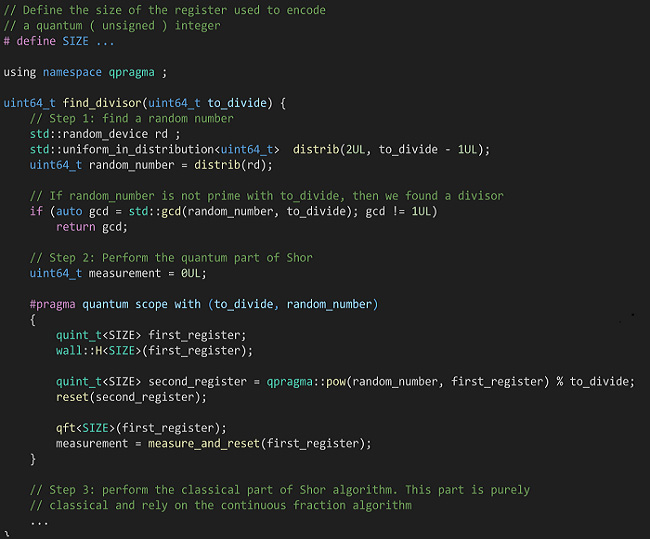High-performance computing (HPC) has become a critical component in various fields, including drug development, weather forecasting, and genomics. Reducing computation time and energy consumption is essential as the complexity of problems multiply and demand increases.
Accelerating innovation with QPUs
Quantum computing is a promising solution that can exponentially increase the speed of solving various problems. Quantum Processing Units (QPUs) have progressed significantly in recent years, developing from lab experiments to industrial products. They have reached the first level of maturity and can now be integrated into High-Performance Computing (HPC) centers.
This integration allows the scientific community to design new algorithms that can be used once the algorithms and QPUs reach a sufficient level of maturity. The HPC community aims to evaluate the potential impact of quantum technology and integration challenges. Combining QPUs with classical high-performance computing can lead to a significant acceleration of technological innovation and computing speed, paving the way for a powerful computational future, so long as we can attain Fault-Tolerant Quantum Computing (FTQC).
Clearing obstacles to speed up the hybridization process
The integration and complete hybridization of QPUs into HPC centers are still in the early stages due to limitations in both hardware and software.
Achieving the hybridization of HPC and Quantum Computing (QC) is crucial. Still, it requires overcoming certain limitations and ensuring compatibility with future quantum devices.
These are some of the primary limitations:
- Quantum devices are sensitive components that require frequent calibration and maintenance. HPC centers are not designed to integrate low-availability components.
- Due to vibration, magnetism, or cooling system constraints, quantum devices must be integrated into a specific environment. This means moving these components away from classical resources and increasing communication latency between quantum and classical components.
- QPUs are programmable through a low-level interface that matches the physical experiment, which makes it difficult to implement complex algorithms like those used in HPC.
- Existing quantum frameworks are implemented in non-HPC programming languages, making the interaction of quantum kernels with HPC routines difficult and inefficient.
Now, the next generation of QPUs is expected to produce perfect results, thanks to Fault-Tolerant Quantum Computing (FTQC) techniques, which are essential for achieving computational power. The transition from Noisy Intermediate-Scale Quantum (NISQ) to FTQC is critical, and it will happen sooner than expected due to the pace at which rapid technological advancements are taking place.
The development of QPUs is expected to continue, resulting in more robust and HPC-compatible devices. Therefore, it is necessary to tackle software limitations to enable HPC-quantum hybridization. Solving the software limitation conundrum will enable quantum routines to be integrated into HPC applications to study the real impact of hybrid algorithms.
Quantum Computing capabilities: Revolutionizing the world of HPC
A classical hybridization in the HPC world already exists, with supercomputers incorporating components like GPUs to accelerate certain computations. This type of hybridization is also the basis for advanced quantum hybridization. In a classical hybrid environment, developers can rely on OpenMP, a parallel programming framework compatible with HPC programming languages, to create hybrid CPU/GPU applications.
Q-Pragma is a brand-new technology framework developed by Eviden’s Quantum R&D task force. This was developed as an open standard inspired by OpenMP, ensuring compatibility with the existing QPU while evolving with quantum algorithmic. OpenMP and Q-Pragma rely on pragma directives to communicate with the compiler to add device-specific features unavailable in the original HPC language.
A powerful tool for HPC centers, this helps optimize programs and continuously accelerate classical supercomputers, while allowing the creation of algorithms that can integrate quantum routines into existing HPC applications. With Q-Pragma, scientists and program developers can now experience the true potential impact of quantum computing in a practical and accessible way.
Eviden has established seven criteria based on theoretical quantum algorithms and low-level quantum frameworks to ensure the framework is suitable for HPC applications. These define HPC-Quantum hybridization, i.e., the dynamic, fine-tuned interaction of classical and quantum components within an HPC application.
As explained in Eviden’s recent preprint, the seven criteria are code and memory locality, dynamic interaction, scalability, reversibility, controllability, safe uncomputation, and typing.
Among all the quantum frameworks, the Q-Pragma framework is the only one that fulfills all the criteria and is the first genuine quantum framework for HPC. Its new C++ pragma directives enables developers to write complex algorithms with just a few lines of code, as shown in the Shor algorithm example below.

The Q-Pragma framework enables heterogeneous computing by allocating memory and scheduling quantum tasks. This is compatible with HPC scheduling systems, making scheduling workloads easier. Moreover, it is hardware-agnostic and can be expanded with Quantum Error Correction (QEC) modules to target upcoming Fault-Tolerant Quantum Computers (FTQC).
So, what does this mean for an HPC center?
Well, with the Q-Pragma framework, HPC centers can implement HPC-Quantum hybridization on a larger scale. Current HPC applications can be augmented to harness quantum acceleration. HPC centers can effortlessly integrate their existing C++ programs, streamlining workflow and boosting productivity.
In an unprecedented show of innovation, the Q-Pragma framework is utilized in the HQI initiative, supported by France 2030 through the French National Research Agency Award number ANR-22-PNCQ-0002.
Connect with me to discuss how Eviden’s Q-Pragma framework can boost your business innovation, computing speed and scaling strategy.
>> Access the scientific preprint available on arXiv
